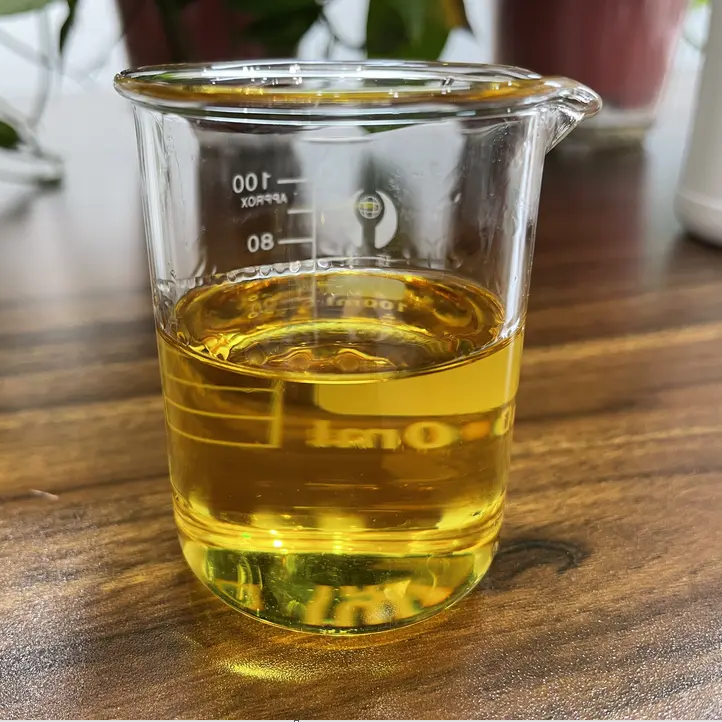
Dec . 31, 2024 04:00 Back to list
Abamectin B1 0.05% Concentrate for Effective Pest Control in Agriculture
Understanding Abamectin B1 A Key Player in Pest Management
Abamectin B1, a derivative of a naturally occurring compound produced by the fermentation of the soil bacterium *Streptomyces avermitilis*, is an important agent used in agricultural pest management. This substance plays a crucial role in safeguarding crops from a variety of pests, thereby ensuring agricultural productivity and food security. With an effective concentration often seen around 0.05%, Abamectin B1 has garnered substantial attention in the realm of both commercial agriculture and home gardening.
Mechanism of Action
Abamectin functions primarily as an insecticide and acaricide. It exerts its effects by targeting the nervous system of pests. The compound binds to glutamate-gated chloride channels and gamma-aminobutyric acid (GABA) receptors, leading to paralysis and eventual death of the target organisms. This dual mechanism makes Abamectin highly effective against a wide array of pests including spider mites, whiteflies, and various species of aphids. The specificity of Abamectin for invertebrate pests has led to its selection as a safer alternative to more broad-spectrum insecticides that may affect beneficial insects as well.
Application in Agriculture
The application of Abamectin B1 in agriculture primarily involves its use on fruit and vegetable crops, ornamental plants, and turf. Farmers often apply it in the form of sprays or soil drenches, taking care to follow recommended dosage guidelines to minimize any potential negative effects on non-target species. At a concentration of 0.05%, it has proven effective in controlling populations of harmful insects without excessively impacting beneficial insects such as ladybugs or predatory mite species.
The timing of application is crucial for maximum efficacy. It is often advised to apply Abamectin during the early stages of pest infestation when populations are manageable. This proactive approach helps to reduce the chances of pest resistance developing, thereby sustaining the effectiveness of this valuable pest management tool.
abamectin b1 0.05 product

Environmental Considerations
While Abamectin B1 is generally considered to have a lower toxicity to mammals and birds compared to many other insecticides, it is still important to consider its environmental impact. Care should be taken to avoid runoff into waterways, as Abamectin can be harmful to aquatic life. Integrated Pest Management (IPM) practices are recommended when using Abamectin, promoting a holistic approach to pest control that includes monitoring pest levels, implementing cultural controls, and using biological control agents alongside chemical interventions.
Future Perspectives
The ongoing use and study of Abamectin B1 raise questions about sustainability and resistance management in agriculture. Continuous monitoring of pest populations and their response to Abamectin will be critical in preventing the onset of resistance. Researchers are actively looking into combining Abamectin with other pest management strategies to enhance effectiveness while reducing the likelihood of pests developing resistance.
Moreover, as organic and sustainable farming practices gain traction worldwide, the potential for Abamectin's use in organic agriculture also merits exploration. Its low toxicity is appealing for growers seeking sustainable pest management solutions.
Conclusion
In summary, Abamectin B1 at a concentration of 0.05% represents a significant advancement in pest management strategies for both commercial agriculture and home gardens. Its targeted action, effectiveness against a variety of harmful insect species, and relatively favorable safety profile make it an essential tool. However, responsible use that considers environmental impacts and resistance management will be crucial in ensuring its efficacy for years to come. As agricultural challenges evolve, so too will the strategies to combat them, with Abamectin B1 likely remaining a pivotal component in this ongoing battle against pests.
-
Azoxystrobin: Broad-Spectrum Fungicide Solutions
NewsAug.11,2025
-
Best EPA Boscalid: Superior Crop Fungicide for Max Yields
NewsAug.11,2025
-
Best Willowood Imidacloprid: Superior Pest Control Solutions
NewsAug.10,2025
-
Best EPA Boscalid Fungicide: Ultimate Crop Protection
NewsAug.09,2025
-
Cyprodinil Fungicide: Broad-Spectrum Crop Protection
NewsAug.08,2025
-
Tembotrione Herbicide: Advanced 8% OD for Broad Spectrum
NewsAug.07,2025
